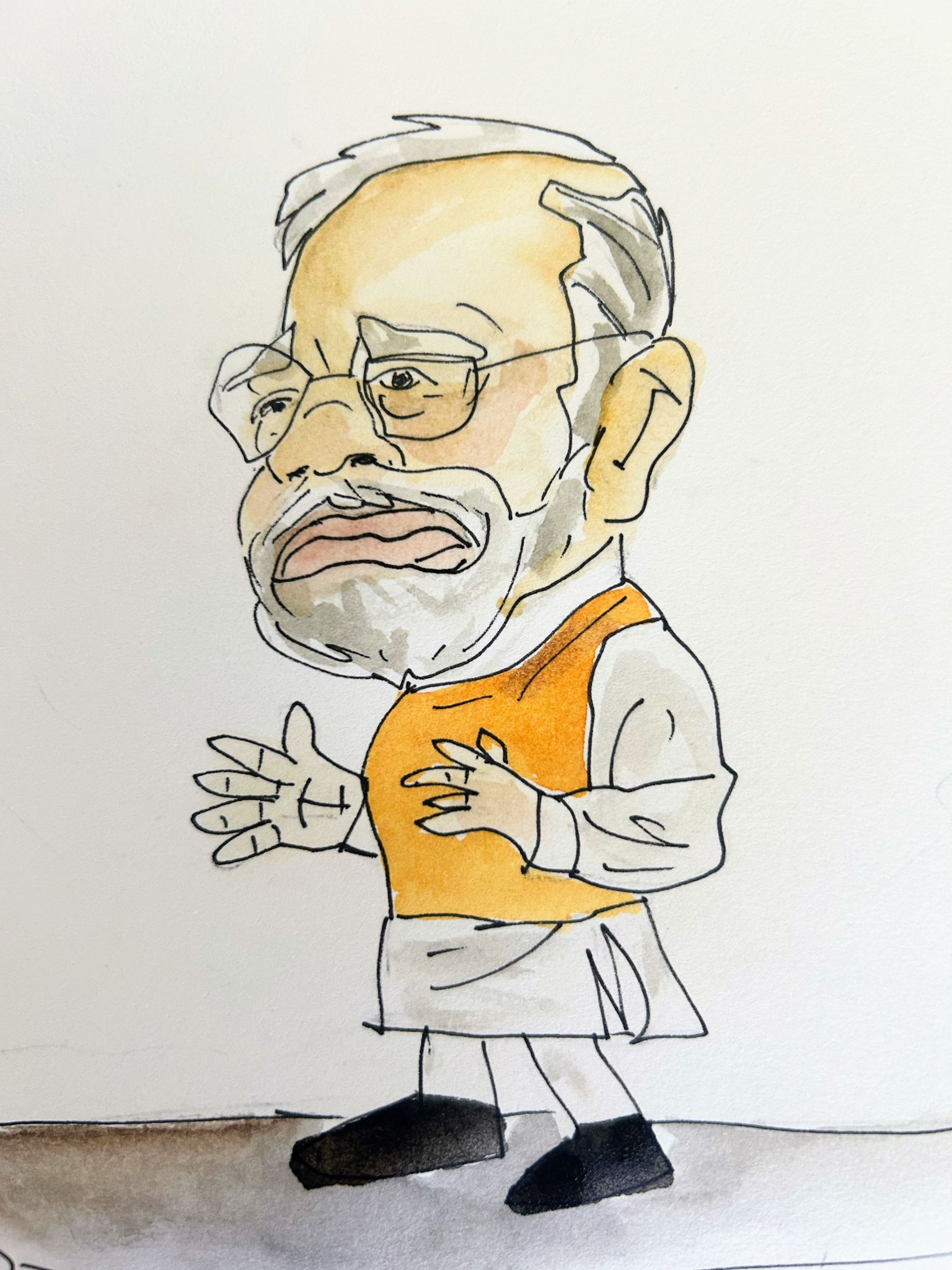
Illustration by Keera Ratnam / wavesofcolour
Despite pre-election bluster and high hopes, the Bharatiya Janata Party (BJP) has suffered a resounding defeat in Tamil Nadu, failing to gain a single seat. Even constituencies such as Coimbatore and Dharmapuri, where the party’s state leader, K. Annamalai was confident of a victory, was swept by the ruling Dravida Munnetra Kazhagam (DMK). Despite a renewed commitment to win over the southern state by India’s Prime Minister, Narenda Modi, which saw him touring the state and avowing affection for the Tamil language and culture, he has failed spectacularly. In spite of the overtures to Tamil citizens, voters remained unstirred, holding such rhetoric as hollow. Throughout the campaign, the BJP was slammed by Tamil Nadu’s Chief Minister for its “betrayal of Tamils” and the party’s inability to combat this claim underlies its failure.
Ahead of the election, the BJP central leadership sought to turn the tables on this claim. Modi and his foreign Minister, S Jaishankar, launched a scathing critique on the Indian National Congress over the sovereignty of an islet between Tamil Nadu and Sri Lanka, Katchatheevu. Responding to the recent release of documents detailing the 1974 decision by Congress to cede the islet to Sri Lanka, Modi took to Twitter to claim that, “this has angered every Indian and reaffirmed in people’s minds - we can’t ever trust Congress”. Jaishankar similarly slammed the decision as callous and noted that “in the last 20 years, 6,184 Indian fishermen have been detained by Sri Lanka.” Whilst they placed the blame on Congress, Annamalai brought the fight to DMK stating that they also bore guilt.
The issue of fishing rights in the Palk Strait is salient. For years now, including under the BJP administration, Tamil Nadu fishermen have been arrested, beaten and even murdered by the Sri Lankan Navy. To date, not a single Sri Lankan sailor or government official has ever been held accountable. However, even despite the genuine outrage in Tamil Nadu over the treatment of their fishermen, the BJP failed to garner support. This is because for years government officials have paid lip service to the plight of fishermen but done little to address the issues.
Responding to the supposed outrage in Delhi, Sri Lanka’s Foreign Minister, Ali Sabry appeared unfazed, simply stating “there is no need for further deliberations on this issue”. Indeed, the speed with which Katchatheevu has fallen from the agenda is evidence of this. In a recent trip to Sri Lanka, Jaishankar shook hands with Sri Lanka’s premier with nary a word spilt on this. This speaks to a fundamentally feeble approach that Delhi has adopted in its approach towards Sri Lanka.
For years now India has refrained from adopting a more stern approach to its southern neighbor which has alienated Tamils who have consistently demanded action over empty platitudes. In October 2022, India abstained on the UN Human Rights Council resolution 51/L1 which established a mandate to collect evidence of war crimes for use in a potential trial. Instead, its delegate reiterated support for the implementation of the 13th amendment. The 13th amendment is a relic from the Indo-Lanka accord of 1987, which called for a merged North-East and the devolution of police and land powers to the province.
Eelam Tamils have consistently rejected the amendment as an inadequate substitute for their calls for self-determination, whilst the Sri Lankan state has for decades worked to weaken the amendment and to obfuscate its implementation. Instead of heeding to Tamil calls for self-determination, the BJP has decided to cling to this archaic framework set by Congress in the 1980s and has continued to fail to bring pressure to bear on Sri Lanka for its implementation. Consequently those across the North-East, and Tamils in Tamil Nadu who are deeply concerned over the fate of their kinfolk, are unmoved by such an inept approach which disregards their views.
Ultimately, the BJP’s failure in Tamil Nadu is indicative of a failure to take Tamil concerns seriously. Instead of empty rhetoric, India must show clear leadership in tackling the arrest, torture and extrajudicial killing of Tamil Nadu fishermen. Such leadership may be shown through the prosecution of navy officials implicated in war crimes or imposing targeting sanctions. Similarly, the BJP should no longer seek to placate Sri Lanka but show that there will be consequences for Colombo’s continued failure to meet the political aspirations of Tamils; one which goes beyond the meager framework set by the 13th amendment. In making this demand, the BJP should recognise the unalienable right of Eelam Tamils to self-determination. Finally, in place of abstentions, India ought to be a leading partner in pursuing truth and accountability for the genocide suffered. Unless the BJP are able to show Tamils that they care about the issues afflicting them through concrete action, their brand will remain toxic. They will continue to be viewed as betraying the interests of Tamils.
